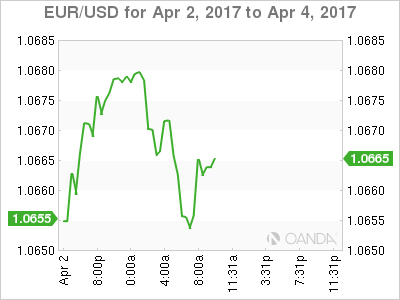Original post Italy and Portugal saw their borrowing costs rise on Monday as investors braced for a reduction in ECB stimulus while uncertainty over global politics and policy pushed down German government bond yields.
The gap between the bond yields of lower-rated southern European and their better-rated northern peers widened, with the European Central Bank reducing its monthly bond purchases to 60 billion euros from April, compared with 80 billion previously.
Though policymakers last week stressed that rate rises are not on the cards in the near future, Italy and Portugal are seen as the biggest beneficiaries of stimulus and most vulnerable to any hints of policy tightening.
Commerzbank (DE:CBKG) strategist David Schnautz said:
We are now in the new environment of only 60 billion euros (of bond purchases), and though this was well telegraphed it seems to be negative for peripheral spreads.
With manufacturing data in the euro zone hitting a six-year high in March, and factories across Europe and Asia posting solid growth for the month on Monday, the argument for “normal” monetary policy is growing, analysts said.

The yield gap between Portugal’s 10-Year government bond and the German equivalent hit an almost four-week high of 368 basis points, up 4 bps on the day.
Italy’s 10-Year borrowing cost gap over Germany hit 203 bps, its highest since March 24.
German government bond yields dropped as geopolitical uncertainty grew ahead of a meeting between U.S. President Donald Trump and Chinese President Xi Jinping, and as the future of the British overseas territory of Gibraltar became an early source of Brexit tension.
German 10-year yields, down 3 bps to 0.30 percent on Monday, may also be tracking U.S. Treasury yields, which fell late on Friday on cautious comments from policymakers.
Rabobank strategist Richard McGuire said:
It’s most likely just playing catch-up with U.S. Treasury yields, which dropped 2 basis points in post-European trading hours on Friday, but you can’t rule out some of the other political noise elsewhere (as a possible cause).
Investors tend to buy “safe” assets such as German government bonds during times of uncertainty.
DZ Bank analysts say this divergence between higher and lower-rated countries within the bloc could continue as French presidential elections loom. The analysts said in a note:
As the first round of the French presidential elections will take place this month, reduced ECB purchases should lead not only to generally rising yields in the euro area, but also to wider cross-market spreads, which should weigh above all on the periphery and France.
French and peripheral bond yields have risen in recent months on the outside chance that far-right leader Marine Le Pen wins the keys to the Elysee Palace and pushes for a French exit from the single currency.
